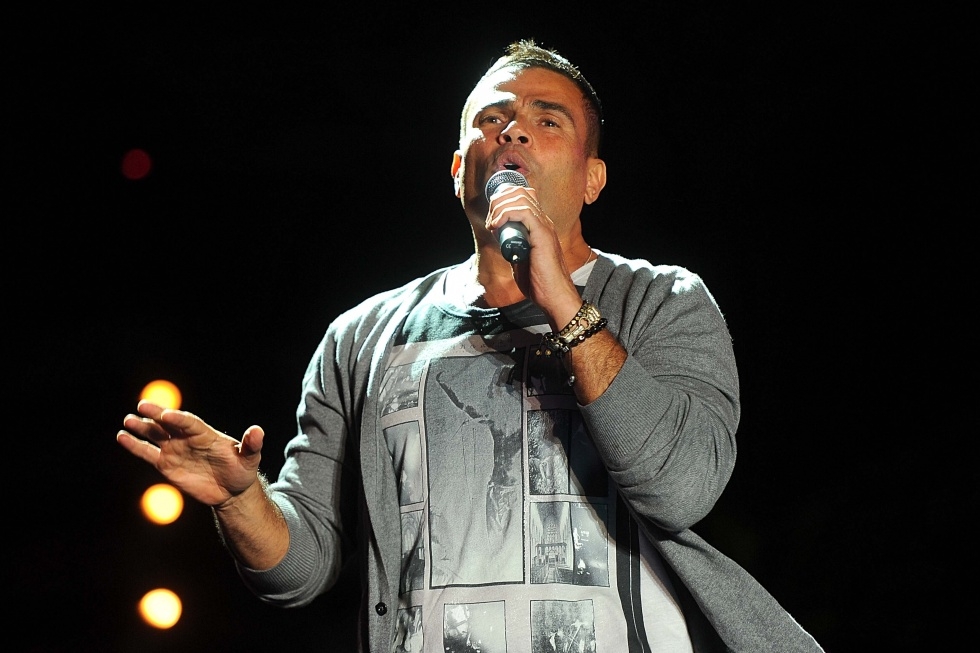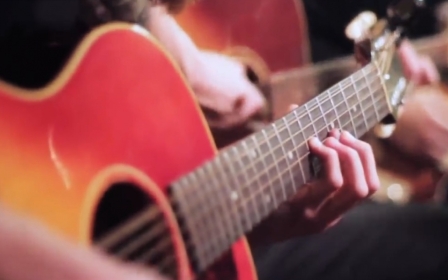Indie stars challenge the mainstream scene in Egypt

In an article published in Kalimat Magazine by journalist Ali Charrier, we are reminded that when in 2011 the song "Sawt el Horreya" (The Voice of Freedom) went viral on YouTube with over 2 million visitors, it did not take too long before Pepsi (and then Coca Cola) approached its authors, the indie rock bands Wust El Balad (established in 1999) and Cairokee (2003), for a spot.
In the last three years, protest chants in Tahrir Square became songs and youth-driven, socially conscious songs forced their way into the Egyptian soundscape, sometimes replacing love tracks by super pop stars Haifa Wahbe and Amr Diab. Local and international commercial brands eyed indie artists’ popularity, for giving to the local scene and not only seeking economic reward.
But in the post-Mubarak era, with the excitement for the Spring now over, these artists could face an uncertain future. In the rich and renowned entertainment industry of Egypt, the Arab world’s most populous nation and its largest music market, indie music rarely makes its way onto mainstream channels, whether it be TV or radio.
In an interview with the Middle East Eye, Tamer Abu Ghazaleh explains, “It (indie music) doesn't match the radios' target audience profiles or regional advertiser targets in the traditional sense.” Composer and performer Tamer Abu Ghazaleh, is a leading figure in modern Arabic culture. Also, sometimes the content is too contentious to the powers that be, Eye Maha Elnabawi, cultural writer for the Egyptian online magazine Mada Masr and the British Guardian tells the Middle East Eye. “You may have seen Rami Essam (dubbed “the singer of the revolution”, ndr) making appearances on certain political talk shows after the ouster of Mubarak, but for the most part, both Rami Essam and political rappers like Zap Tharwat remain outside of the realms of mainstream television and radio, relying instead on the Internet, live shows, and social media for their audience.”
There are exceptions to this. Like for example Cairokee that have managed to land major sponsorship deals with Coca Cola. Their soft pop is easily digestible by brands. The main development in their music is the socially conscious content of their most recent songs.
More alternative tunes
Nevertheless, more “alternative” tunes are reaching recording studios. It is young bands that rely on small labels like Mahmoud Refat’s 100COPIES that are challenging the electronic and experimental music scene. Renowned Lebanese musician Hamdan Zeid also stepped in, producing two young female Egyptian singers: Maii Waleed, who used to be a drummer in the all-female heavy metal band “Mascara”, and Maryam Saleh who should complete an album in 2014. Subspace is another name that comes to mind, while there are other groups trying to become real labels but they still can't figure out the missing link.
Indie music is not the single domain of alternative sounds. The Egyptian Centre for Culture and Arts (Makan) also functions as a label, but focuses on traditional music and musicians in Egypt.
Festival rock
It is through live concerts and festivals that indie music assures most of its revenue. Maybe it is no surprise that the fastest rising music scene belongs to a genre dubbed mahraganat, Arabic for “festivals” (it is electro shaabi for a Western audience). It is a blend of traditional Egyptian wedding music and American hip-hop. The Egyptian mobile operator Mobinil recruited Okka and Ortega, two of its leading figures, for a video mixes the rich Egyptian musical heritage from Nubian folk to simsimiyya of Port Said.
Among the main venues for concerts, there are Sawy Culture wheel or different downtown Cairo or Alexandria culture institutes, and other party venues like boats on the Nile, or private spaces. “You can make a 1,000 LE (about 100 euro) to EGP 50,000 (about 5,000 euro) or more, depending on the venue and the band,” says Tamer Abu Ghazaleh. In 2007, he founded eka3 (rhythm), a platform that aims to build a regional indie music market that can grow some new music genre to mainstream and become sustainable. He also co-founded of Ma3azef, an online music review and critique portal for Arabic tracks.
For hip-hop singers like Aly Talibab, though, it’s hard to get state sponsored spaces like Genaina theatre or Opera House. He reclaims the right to become an active participant in artistic practices, but in a country like Egypt that constantly celebrates national identity and links to tradition, his rap faces difficulties. “It is getting better when artists started to get further with their music than Cairo and Alex", says Talibab in an interview to Middle East Eye, "We had some trouble playing at a venue in Ismailia called Shababik. The police charged the guys with 5000 LE (about 500 euros) and took most of the equipment. That's why it's hard for venues to really start having a thing outside those two cities. But we are going there.”
Audience response varies. Sometimes rejection is the first reaction from the most conservative part of the society. Talibab keeps a positive attitude: “I've seen people come with reactions like 'When I first heard your music I hated it and when I heard more I think I kind of liked it .”
Tamer Abu Ghazaleh believes that the conservative audience is no more an issue: “I believe the indie scene already includes a very wide variety to choose from, depending on the audiences' different cultural values and tastes.” Mohamed Mohsen’s music can be considered classical Arabic with a modern taste, while Massar Egbari plays Arabic rock, Aly Talibab’s is hip-hop and so on. “Perhaps it is more a matter of generations now and a matter of social class to a good extent - adds Abu Ghazaleh - whereby the population mass is more inclined to listen to Mahraganat music.”
The issue of indie music in Egypt has already received academic attention. In 2013, AUC professor Nagla Rizk published the study “From De Facto Commons to Digital Commons? The Case of Egypt’s Independent Music Industry”, in which she looked at consumers attitudes in Egypt. Findings revealed that the majority of money spent on music goes towards attending concerts and barely any is spent on CDs or cassettes.
Means of self-expression
According to Rizk’s research, most of Egypt’s independent musicians produce music for reasons other than monetary benefits. “For most musicians, music is primarily a means of self-expression and voicing opinion - writes Rizk - A great majority of musicians that have recorded an album said they invested in its production with no hope of getting any direct return from it, demonstrating the fact that album production is viewed as a promotional exercise.” Today, like elsewhere in the world, the popularity reached by most indie bands and single musicians is via digital music devices like SoundCloud or Dandin.me (an Arabic version of Soundcloud created by Egyptian brothers Abdel Rahman and Tarek Hussein).
The international community captured the spirit. Rami Essam, who sang Erhal (Go!) in Tahrir Square, in February 2011, fell victim one month after to police batons. Later on, the same year, his brave attitude earned him a Freemuse Award for freedom of expression in music.
Among those interviewed, a good number of Rizk musicians would agree that “they would like to sign (with a label, ndr) if offered the chance, but only if the conditions suited their tastes. They said they were concerned about ‘selling their souls’ to production companies or labels.”
Nevertheless, some musicians revealed propositions to make Egypt’s independent music industry more economically viable. Rapper and poet Zap Tharwat, who managed to create a style of music that is appealing to his numerous Egyptian followers who are religious (but also talks politics, Palestine and Syria), began his career in 2009 in an attempt to push Rap music forward in Egypt into a mainstream product. Egypt has an interesting hip-hop pedigree: like MC Mohammed El Deeb aka Deeb who first appeared on the scene in 2005 with the Egyptian hip-hop group Asfalt.
His ultimate dream is to receive a Grammy Music Award before the age of 30, explained Zap, in an interview released in 2012 to the Egyptian magazine What Women Want.
New MEE newsletter: Jerusalem Dispatch
Sign up to get the latest insights and analysis on Israel-Palestine, alongside Turkey Unpacked and other MEE newsletters
Middle East Eye delivers independent and unrivalled coverage and analysis of the Middle East, North Africa and beyond. To learn more about republishing this content and the associated fees, please fill out this form. More about MEE can be found here.


